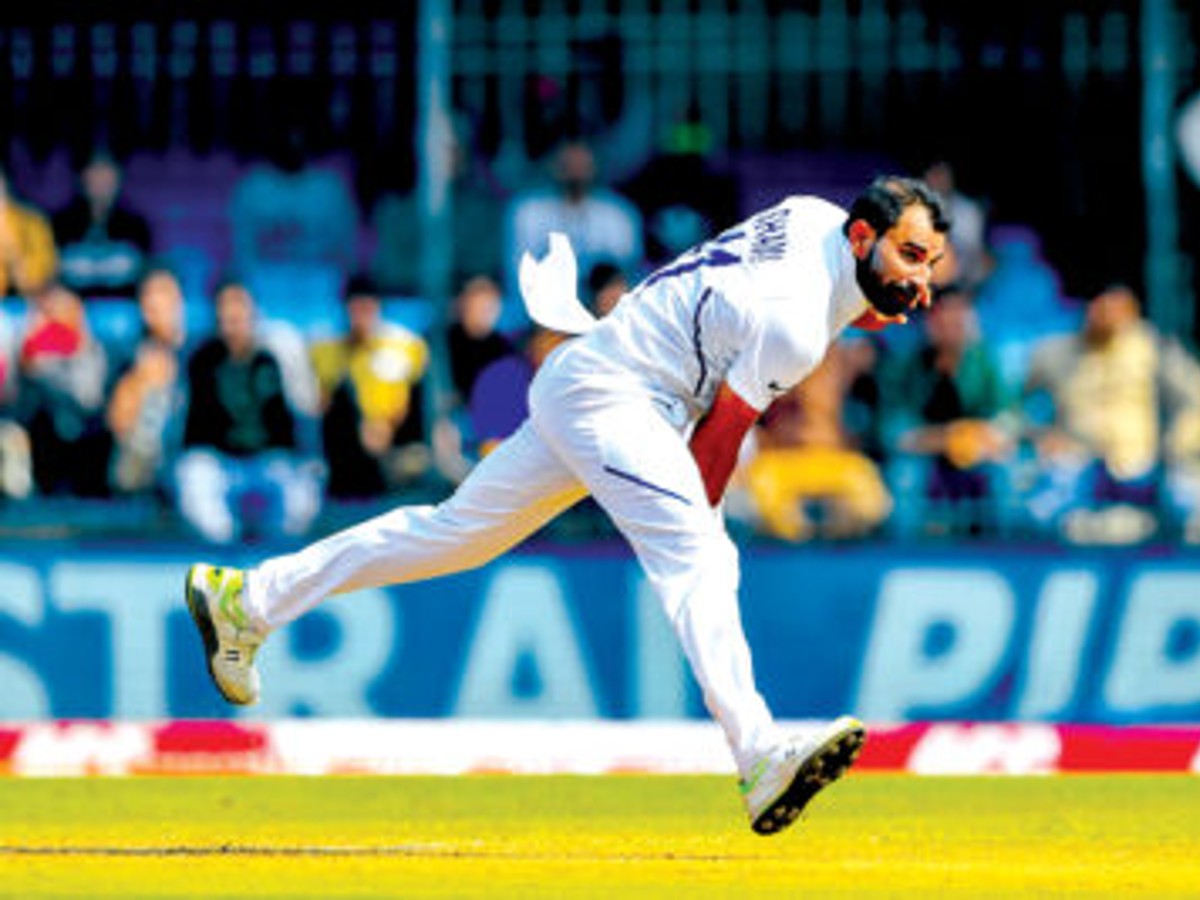
India's Mohammed Shami delivers a ball to Bangladesh's Mohammad Mithun during the third day of the first Test cricket match of a two-match series between India and Bangladesh at Holkar Cricket Stadium in Indore on November 16, 2019. (AFP File)
The International Cricket Council has brought in a slew of changes, including a nod for mankading and a ban on the use of saliva.
Cricket rules are ever-expanding. Earlier, Test was the only format used for international cricket. Later it was followed by ODIs and T20’s. Even for Test matches now, they are played with pink balls and lights, and are referred to as day/night Test matches.
Initially, there was the ODI World Championship, but now there are world cup championships held in all the formats.
Also read: No level playing field: Delhi cricket body allows only local players
A few days before the forthcoming Twenty-20 World Cup, which will be hosted in Australia beginning on 10 October, 2022, the International Cricket Council (ICC) announced a number of significant changes to the game’s existing playing rules that could play a major role in it.
A few major changes
Batsmen return when caught: When a batsman is caught out, the new batsman will face the bowler regardless of whether the batter crossed prior to the catch was taken.
Use of saliva is permanently banned: This prohibition has been in place for the last two years because of the COVID protocols. However, the restriction has now been permanently banned.
Batsmen’s right to play the ball: This is to be restricted so as to require some part of their bat or person to remain within the pitch. Should they venture beyond that, the umpire can call the ball a dead ball. Any ball that forces the batsman to leave the pitch will be called No-Ball.
Unfair movement by the fielding side: Any unfair or deliberate movement by the fielding side while the bowler is running to bowl can now result in five penalty runs given to the batting team and can be called a dead ball as well.
Batsmen incoming time reduced: An incoming batsman will now be required to face the delivery within two minutes in Tests and ODIs. The threshold for the twenty over games has remained unchanged.
Mankad changed to Run-out: running out the non striker before the ball is bowled is now changed from the unfair play section to the run out section.
In- match penalty: the failure of a fielding team to complete their quota of 20 overs in the allotted time frame will result in an additional fielder being brought in the 30-yard circle for the remaining overs. This will also be adopted in ODI matches after the completion of the ICC Men’s World Cup.
Follow us on:
Instagram: instagram.com/thepatriot_in/
Twitter: twitter.com/Patriot_Delhi
Facebook: facebook.com/Thepatriotnewsindia
Police recovered 20 cartons containing 1,000 quarters of alcohol labelled "For Sale in Haryana Only"…
Limited-period offering at Radisson Blu Plaza Delhi Airport presents a carefully sequenced dining experience
the aerial survey was conducted between February 16 and 20 across Khyala, Vishnu Garden, Ranhola,…
Presented by Artisera at Bikaner House, the two-person exhibition brings together Ashu Gupta and Sangeeta…
Unidentified motorcycle-borne assailants fired at a Farsh Bazar house in the early hours; no injuries…
Delhi, placed in Pool H, recorded a commanding 64-42 victory over Tripura. Ashish led from…